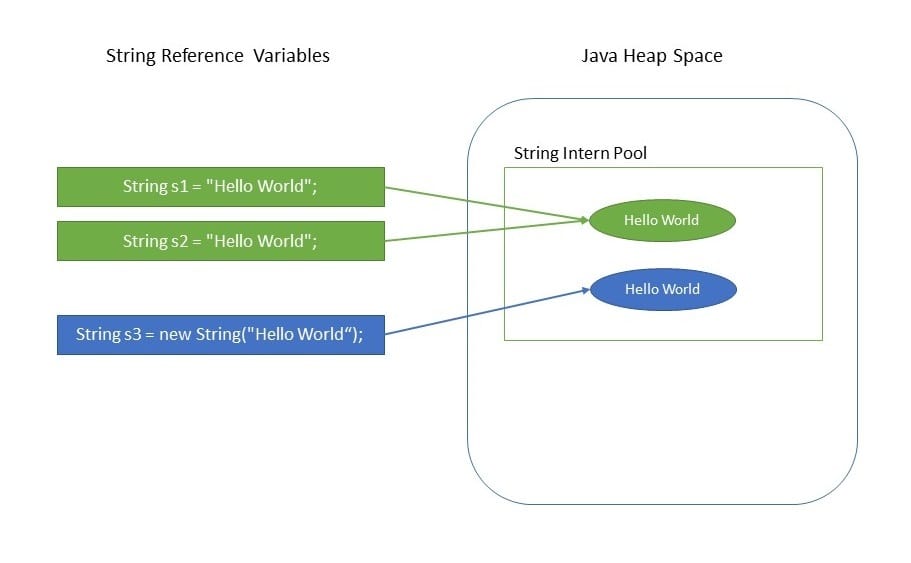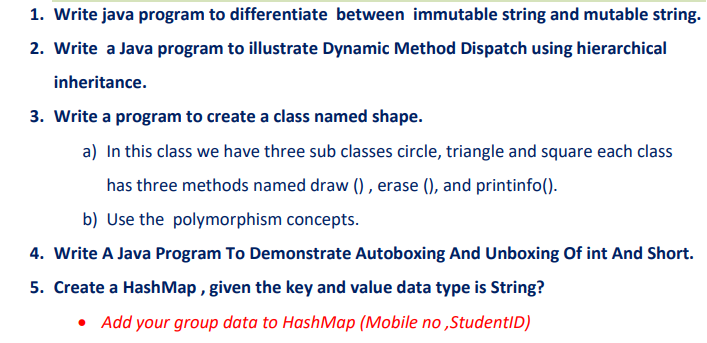Why Are Strings Immutable in Java? Recognizing the Core Principles
Why Are Strings Immutable in Java? Recognizing the Core Principles
Blog Article
Discovering the Benefits of Unalterable Strings in Modern Programs Paradigms
In the world of modern programs standards, the concept of unalterable strings stands as a keystone of durable software advancement. By adopting unalterable strings, designers can make certain improved data honesty, enhanced string safety and security, streamlined debugging procedures, increased security steps, and efficient efficiency optimization.
Improved Information Integrity

By avoiding the alteration of string items, immutability eliminates the threat of unintended adjustments to the data they hold. This not just improves the security of the info yet likewise enhances the reliability of the code that counts on these strings.
Immutability additionally sustains much safer multithreading settings, as concurrent access to immutable strings does not posture the threat of information corruption via simultaneous modifications. This building simplifies the procedure of handling strings in identical programming situations.
Fundamentally, immutability serves as a safety guard around the information kept within strings, improving their honesty by making sure that once defined, their values stay unchanged throughout the program's execution.

Improved Thread Safety
Unalterable strings enhance the thread safety and security of programs by making sure that once a string object is developed, its value can not be modified. This residential property gets rid of the risk of concurrent threads attempting to change the exact same string simultaneously, which might result in information corruption or irregular states in the program - Why are strings immutable in Java?. In a multi-threaded setting, where multiple threads access and manipulate information simultaneously, the immutability of strings offers a degree of security by guaranteeing that the data remains the same throughout its lifecycle
Simplified Debugging Procedures
Offered the boosted string safety and security facilitated by immutable strings, a considerable benefit arises in the world of simplified debugging procedures. Unalterable strings, when produced, can not be altered, making it less complicated to map the circulation of information and determine the source of pests in a program. This immutability ensures that strings continue to be constant throughout the execution of the program, lowering the chance of unanticipated adjustments that could cause errors.
When debugging with mutable strings, designers often encounter issues where a string's worth is customized unintentionally, making it challenging to identify the origin of an insect. Nonetheless, with immutable strings, the data continues to be the same, enabling developers to concentrate on assessing the real logic of the code pop over here as opposed to locating where and when a string was modified inaccurately.
Additionally, immutable strings simplify the debugging process by making it possible for simpler recreation of pests. Because unalterable strings do not change state, developers can recreate and research bugs better, bring about quicker identification and resolution of issues within the codebase. This structured debugging operations inevitably adds to greater software program top quality and boosted overall development effectiveness.

Enhanced Protection Procedures
Enhancing information protection and strengthening system honesty, the use of unalterable strings in software program applications contributes significantly to increased protection measures. Unalterable strings additionally play a crucial function in avoiding usual safety vulnerabilities such as barrier overflows and SQL shot assaults, as efforts to manipulate string data at runtime are inherently restricted.
Furthermore, the immutability of strings improves the predictability of program behavior, making it simpler to validate inputs and avoid unforeseen modifications that can endanger safety. This predictability streamlines the process of bookkeeping and confirming code, allowing designers to identify potential safety and security technicalities better. On the whole, including immutable strings right into software program growth practices not only improves the effectiveness and dependability of applications but additionally strengthens their strength against safety risks.
Reliable Performance Optimization
When dealing with mutable strings, procedures like concatenation or substring production commonly result in the creation of advice new string objects, leading to memory expenses and boosted processing time. By permitting strings to stay unchangeable and consistent, immutable strings assist in far better memory monitoring and caching chances, check over here ultimately boosting the total performance of the software.
Since immutable strings can not be customized once developed, they can be shared across strings without the risk of unanticipated changes, reducing the requirement for synchronization devices and boosting concurrency. Immutable strings streamline debugging procedures as programmers can trust that a string's worth will certainly stay constant throughout the program's execution, removing potential mistakes created by mutable state changes.
Conclusion
Finally, the advantages of utilizing unalterable strings in modern-day programming paradigms can not be overemphasized. Improved data stability, boosted thread safety and security, streamlined debugging processes, raised safety procedures, and reliable performance optimization all add to the overall effectiveness of shows jobs. By incorporating unalterable strings right into programming methods, developers can take advantage of an extra reputable and durable codebase.
Immutability, a crucial feature of strings in programming languages such as Java and Python, guarantees that when a string things is created, it can not be modified or changed.Unalterable strings boost the string safety and security of programs by guaranteeing that once a string things is produced, its value can not be changed. Immutable strings also play a vital role in protecting against common security vulnerabilities such as buffer overflows and SQL shot strikes, as efforts to control string information at runtime are inherently restricted.
By allowing strings to continue to be stable and consistent, immutable strings help with better memory management and caching chances, inevitably improving the total performance of the software.
Unalterable strings streamline debugging procedures as developers can rely on that a string's value will certainly continue to be consistent throughout the program's execution, removing prospective mistakes caused by mutable state adjustments.
Report this page